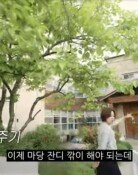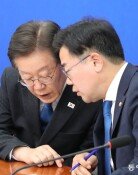Construction Orders Lowest in Five Years and Five Months
Construction Orders Lowest in Five Years and Five Months
Posted October. 04, 2004 21:46,
There is an increasing possibility that the construction business will witness a hard landing. To illustrate, construction orders marked its lowest point in five years and five months. In addition, the composite index, which can be used to watch business conditions of both the present and the future, fell for five consecutive months, arousing worries that the economy is entering a full-scale recession.
According to the Augusts Trend of Industrial Activities, issued by the National Statistical Office yesterday, domestic construction orders were 4.159 trillion won, a 39.2 percent decrease from the same month last year.
Such a fall is the lowest in five years and five months since it fell 51.5 percent in March 1999.
The cycle variation range of the coincidence index, which shows current economic conditions, marked 97.1 percent, falling one point from last month, and the leading index, which forecasts the timing for a future economic turnaround, was 2.2 percent compared with the same month last year, falling 0.3 percentage point from last month both indexes showed decline for five consecutive months.
Subsequently, some economic experts suggest a possibility that Korea can experience a double dip (a phenomenon whereby the economy temporarily rises and falls again during a recession).
Meanwhile, thanks to brisk business in the semiconductor and automobile industries, Augusts industrial production increased 10.6 percent compared with August of last year, exhibiting a two-digit increasing trend for seven consecutive months since February of this year.
On the other hand, wholesale and retail sales, which are the main indices indicating domestic demand, fell 1.5 percent.
Investment in equipments was relatively healthy, increasing five percent due to increased investment in machines used to produce semiconductors. Shipments of consumer goods for domestic use, however, decreased 3.7 percent, and domestic machine orders also fell as much as 6.2 percent.
Soft landing refers to the phenomenon whereby the economy moves toward stability from a brisk economy without side effects such as increased unemployment and corporate failures, and hard landing is the opposite.
Jong sik Kong kong@donga.com







